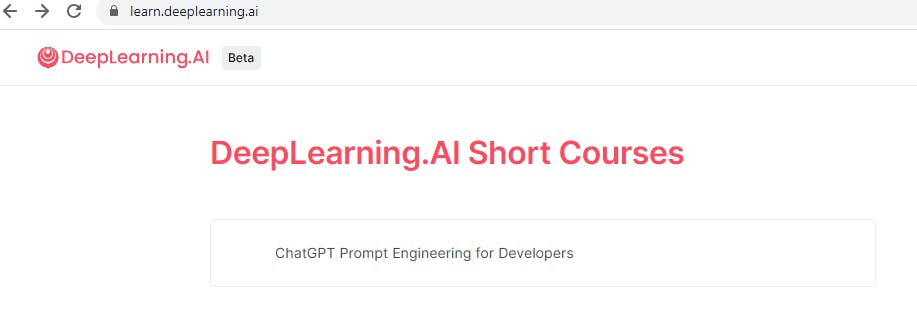Table of contents
Introduction
In the past few days, I have been learning about Large Language Models (LLMs) and prompt engineering from a free course by DeepLearning.AI (I strongly suggest you check it out!) The course is taught by engineers who created ChatGPT, and it has piqued my curiosity. In this blog post, I will discuss some interesting things you can do with LLMs and prompts.
LLMs are a type of artificial intelligence (AI) that can generate text, translate languages, write different kinds of creative content, and answer your questions in an informative way. They are trained on massive datasets of text and code, and they can be used for a variety of tasks.
Prompts are a piece of text used to guide the LLM's output. For example, if you want the LLM to generate a blog post, you would provide it with a prompt that includes the topic of the blog post, the target audience, and the desired tone. After all, it can be pretty humorous to think about how AI is now writing blog posts for us.
Generating text: LLMs can be used to generate text, such as blog posts, articles, emails, and even creative writing.
Translating languages: LLMs can be used to translate languages, which can be helpful for businesses that operate in multiple countries or for individuals who are learning a new language.
Writing different kinds of creative content: LLMs can be used to write different kinds of creative content, such as poems, code, scripts, musical pieces, emails, letters, etc.
Answering your questions in an informative way: LLMs can be used to answer your questions in an informative way, even if they are open-ended, challenging, or strange.
Prompts
if you want the LLM to generate a blog post, you would provide it with a prompt that includes the topic of the blog post, the target audience, and the desired tone.
Prompts can be used to achieve a variety of results, such as:
Generating different creative text formats: LLMs can be used to generate different creative text formats, such as poems, code, scripts, musical pieces, email, letters, etc., by providing them with appropriate prompts.
Answering your questions in an informative way: LLMs can be used to answer your questions in an informative way, even if they are open ended, challenging, or strange, by providing them with prompts that clearly define the question.
Use cases for prompts
There are many ways to use prompts to your advantage. For example, you could use prompts to:
Generate content more quickly and easily: LLMs can generate content much more quickly and easily than humans can. This can be helpful for businesses that need to create a lot of content, such as blog posts, articles, or marketing materials.
Improve the quality of your content: LLMs can help you improve the quality of your content by providing you with feedback on grammar, style, and clarity.
Get more creative: LLMs can help you get more creative by providing you with new ideas and perspectives.
Specific use cases
Here are some specific use cases for prompts:
Iterative prompts: Iterative prompts allow you to refine the output of an LLM by providing feedback on each iteration. This can be helpful for tasks such as writing, translating, and creative writing.
Summarizing prompts: Summarizing prompts can be used to generate a summary of a piece of text. This can be helpful for tasks such as research, learning, and understanding complex topics.
Transforming prompts: Transforming prompts can be used to transform a piece of text into a different format, such as code, script, or musical piece. This can be helpful for tasks such as programming, writing, and creating music.
Inferring prompts: Inferring prompts can be used to infer information from a piece of text. This can be helpful for tasks such as research, learning, and understanding complex topics.
Expanding prompts: Expanding prompts can be used to expand a piece of text by adding new information or details. This can be helpful for tasks such as research, writing, and creating content.
Chatbot prompts: Chatbot prompts can be used to create a chatbot that can interact with users in a natural way. This can be helpful for tasks such as customer service, education, and entertainment.
Conclusion
LLMs and prompts are a powerful combination for creative content. But be careful what you wish for. If you're not careful, your prompts might just come back to haunt you.
For example, I once asked my LLM to write a blog post about the dangers of artificial intelligence. The post was so convincing that I started to worry that my LLM was going to take over the world.
Of course, I'm being a bit dramatic. But it's important to remember that LLMs are still under development. They're not perfect, and they can sometimes make mistakes. So, if you're going to use LLMs, it's important to use them wisely.


